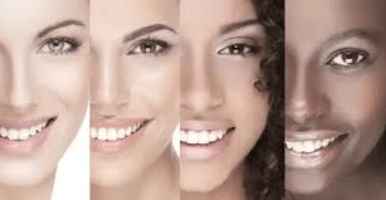Have you ever wondered why aloe vera has been treasured across civilizations for thousands of years? This humble succulent plant, often sitting quietly on windowsills, holds remarkable healing properties that continue to amaze both scientists and skincare enthusiasts alike. The benefits of aloe vera for skin, hair, and health extend far beyond the common sunburn relief we typically associate it with.
Rich in vitamins, minerals, enzymes, and amino acids, aloe vera serves as nature’s multifaceted solution to numerous beauty and wellness concerns. The remarkable versatility of aloe vera for skin care makes it a staple ingredient in countless beauty products, while its health benefits continue to be studied and validated by modern science.
From its remarkable hydrating properties to its ability to soothe troubled skin, each benefit demonstrates why aloe vera has stood the test of time as nature’s healing wonder.

Benefits of Aloe Vera
For Your Skin
 Deep Hydration Without Greasiness
Deep Hydration Without Greasiness
Aloe vera is remarkably good at moisturizing the skin without adding any oily residue. The gel consists of approximately 99% water, making it a perfect natural moisturizer for all skin types. What makes aloe vera unique among moisturizers is its ability to penetrate deeply into all three layers of the skin—the epidermis, dermis, and hypodermis.
For those with oily or combination skin, aloe vera provides essential moisture without clogging pores or contributing to shininess. Even those with sensitive skin typically tolerate aloe vera exceptionally well, as it rarely causes irritation when applied topically. The lightweight texture absorbs quickly, making it convenient for daily use regardless of your skin type or climate.
Powerful Anti-Aging Properties
The quest for youthful skin has led many to expensive creams and treatments, but aloe vera offers remarkable anti-aging benefits at a fraction of the cost. Rich in antioxidants including vitamins E and C, aloe vera helps combat free radicals that contribute to premature aging and skin damage.
Regular use of aloe vera for skin can significantly improve elasticity and collagen production—two critical factors in maintaining youthful skin. The plant contains specific compounds called sterols that promote the production of hyaluronic acid and collagen, which naturally decrease as we age. Aloe vera helps minimize the appearance of fine lines and stops new wrinkles from forming by promoting these vital skin components.
Beyond its effect on wrinkles, aloe vera also addresses other signs of aging such as dark spots and uneven skin tone. The natural enzymes and vitamin content help to gently exfoliate dead skin cells, promoting cell turnover and revealing brighter, more even-toned skin underneath.
Soothing Relief for Sunburn and Irritation
While many people are familiar with aloe vera’s ability to soothe sunburns, few understand the complex mechanisms behind this healing action. When applied to sunburned skin, aloe vera creates a protective layer that retains moisture while delivering cooling relief through its high-water content.
The anti-inflammatory properties of aloe vera come from specific compounds including acemannan and salicylic acid, which reduce redness, swelling, and pain associated with sunburn and other forms of skin irritation. These compounds inhibit the pathways that trigger inflammation, providing almost immediate comfort to damaged skin.
Beyond sunburn relief, aloe vera helps repair the skin barrier function that becomes compromised from UV exposure. By supporting the skin’s natural healing process, aloe vera not only provides immediate comfort but also helps prevent long-term damage from sun exposure when used promptly.
Acne Management and Prevention
The benefits of aloe vera for acne-prone skin are multifaceted, addressing several root causes of breakouts simultaneously. First, aloe vera contains natural salicylic acid and other enzymes that gently exfoliate the skin, removing dead cells that can clog pores and lead to acne formation.
Additionally, the antimicrobial properties of aloe vera help combat Propionibacterium acnes, the bacteria responsible for inflammatory acne. By reducing these bacterial populations on the skin’s surface, aloe vera helps prevent new breakouts while allowing existing ones to heal more quickly.
The anti-inflammatory action of aloe vera reduces the redness and swelling associated with active acne, making breakouts less noticeable even as they heal. Perhaps most importantly, aloe vera accomplishes all this without the drying effects commonly associated with traditional acne treatments, making it suitable for continuous use without compromising the skin’s moisture barrier.
Enhanced Wound Healing and Scar Reduction
The wound-healing properties of aloe vera have been documented in numerous scientific studies, showing its ability to accelerate healing by up to 8 times compared to conventional treatments for certain wounds. This remarkable healing capacity stems from aloe vera’s ability to increase collagen synthesis and reorganize collagen fibers in a more structured pattern during the healing process.
For those concerned about scarring, aloe vera helps minimize scar formation by modulating the inflammatory response and promoting proper tissue reorganization during healing. When applied consistently to healing wounds and fresh scars, aloe vera can significantly improve the appearance of the healed skin, reducing both discoloration and textural changes.
For Your Hair

Natural Solution for Scalp Issues
A healthy scalp forms the foundation for beautiful hair, and aloe vera addresses numerous common scalp concerns. The enzymes present in aloe vera effectively break down excess dead skin cells and sebum that can accumulate on the scalp, leading to issues like dandruff and itchiness.
The antibacterial and antifungal properties of aloe vera help combat conditions like seborrheic dermatitis, which often manifests as stubborn dandruff resistant to regular shampoos. By creating an inhospitable environment for the Malassezia fungus associated with dandruff, aloe vera provides relief from flaking and itching where other treatments may fail.
For those with sensitive scalps prone to irritation from hair products, aloe vera serves as a natural calming agent. Its anti-inflammatory properties soothe irritation, reduce redness, and alleviate the discomfort associated with product sensitivity or allergic reactions on the scalp.
Consider creating a weekly aloe vera scalp treatment by massaging fresh gel directly onto the scalp, allowing it to sit for 30 minutes before shampooing as usual. For more severe scalp conditions, increasing the frequency to 2-3 times weekly can provide more rapid relief.
Hair Growth Stimulation
The relationship between aloe vera and hair growth stems from its ability to create optimal conditions at the follicular level. Aloe vera contains proteolytic enzymes that repair dead skin cells on the scalp, effectively clearing hair follicles of excess sebum and debris that can inhibit new growth.
Furthermore, aloe vera’s rich composition of vitamins A, C, and E supports cellular turnover and promotes healthier, more resilient hair growth. These vitamins, along with folic acid and vitamin B12 found in aloe vera, are essential nutrients that nourish hair follicles and encourage stronger, thicker hair strands.
By improving blood circulation to the scalp, aloe vera ensures that hair follicles receive adequate oxygen and nutrients—key factors in maintaining the anagen (growth) phase of the hair cycle. Regular application of aloe vera to the scalp may help reduce hair shedding and support longer growth phases, resulting in fuller-looking hair over time.
For best results, incorporate aloe vera into your hair care routine through regular scalp massages with the fresh gel, or look for shampoos and conditioners containing substantial amounts of pure aloe vera extract.
Deep Conditioning for Damaged Hair
Hair damaged by heat styling, chemical treatments, or environmental factors can benefit tremendously from aloe vera’s restorative properties. The molecular structure of aloe vera allows it to penetrate the hair shaft more effectively than many commercial conditioners, delivering hydration and nutrients directly where they’re needed most.

The unique composition of aloe vera includes specific polysaccharides that bind moisture to the hair, preventing the dryness and brittleness that lead to breakage. Additionally, aloe vera’s pH balance closely matches that of healthy hair, helping to close the cuticle layer and reduce frizz while improving shine and manageability.
Create a deep conditioning treatment by mixing fresh aloe vera gel with a few drops of argan or jojoba oil, applying generously to damp hair, and covering with a shower cap for 30-60 minutes before rinsing thoroughly.
For Your Overall Health
 Digestive Health Improvement
Digestive Health Improvement
The benefits of aloe vera extend beyond topical applications, offering remarkable support for digestive health when consumed safely. Aloe vera juice contains compounds that help regulate stomach acid production, potentially alleviating symptoms of acid reflux and heartburn without the side effects associated with conventional medications.
For those suffering from irritable bowel syndrome (IBS) or inflammatory bowel diseases, aloe vera’s anti-inflammatory action in the digestive tract can provide welcomed relief from symptoms like bloating, gas, and abdominal discomfort. The plant’s natural enzymes also support more efficient digestion and nutrient absorption.
Aloe vera acts as a gentle digestive regulator, helping to normalize bowel movements whether you’re dealing with constipation or diarrhea. This balancing effect stems from aloe’s ability to increase water content in the intestines while simultaneously toning intestinal muscles for more effective elimination.
Immune System Support
The complex polysaccharides found in aloe vera, particularly acemannan, demonstrate significant immunomodulatory effects—meaning they help balance immune function rather than simply boosting it. This balanced approach to immune support makes aloe vera particularly valuable for those with autoimmune conditions or chronic inflammation.

Additionally, aloe vera’s rich antioxidant profile, including vitamin C, E, and several unique plant compounds, helps combat oxidative stress throughout the body. By neutralizing free radicals, these antioxidants protect cells from damage and support overall immune resilience.
For immune support, consider incorporating a small amount (1-2 ounces) of food-grade aloe vera juice into your daily routine, particularly during seasonal transitions or periods of increased stress when immune function often becomes compromised.
FAQs
How do you use fresh aloe vera on the face overnight?
Fresh aloe vera gel can be incredibly beneficial when used as an overnight treatment for your face. To start, cleanse your face and let it dry. Extract fresh gel from an aloe vera leaf by slicing it open lengthwise and scooping out the clear, gel-like substance. Apply a thin, even layer of this gel to your entire face, avoiding the sensitive eye area.
Allow the gel to dry slightly before heading to bed—it will form a lightweight, breathable mask that works throughout the night. The overnight application gives aloe vera ample time to penetrate deeply into your skin, delivering intense hydration and nutrients while you sleep.
In the morning, simply rinse your face with cool water and continue with your regular skincare routine. Many users notice improved skin texture, reduced redness, and enhanced moisture levels after just a few overnight treatments.
Is aloe vera safe to use on my face every day?
Yes, applying aloe vera to your face daily is generally safe and beneficial for most skin types. The gentle nature of pure aloe vera makes it suitable for regular use without the risk of irritation that often accompanies other active ingredients. Daily application can help maintain consistent hydration levels while providing ongoing protection against environmental damage through its antioxidant properties.
For optimal results, add aloe vera into both your morning and evening skincare routines. In the morning, its lightweight texture creates an excellent base for makeup while offering protection against environmental pollutants. In the evening, its regenerative properties support your skin’s natural repair processes while you sleep. Remember to always perform a patch test before beginning daily application.
Is it acceptable to apply aloe vera to your face all night?
Leaving aloe vera on your face overnight is not only safe but highly beneficial for most skin types. Unlike many overnight treatments that can potentially clog pores or cause irritation, pure aloe vera gel is non-comedogenic and gentle enough for extended contact with skin. The overnight application maximizes absorption time, allowing your skin to fully benefit from aloe vera’s rich complement of vitamins, minerals, and bioactive compounds.
During sleep, your skin naturally enters a heightened state of repair and regeneration. Aloe vera supports these processes through its content of compounds like gibberellin, a growth hormone that stimulates the production of new cells and accelerates healing. Many users report waking up to noticeably calmer, more hydrated skin with reduced redness after overnight application.
Can aloe vera remove dark spots?
Aloe vera can indeed help reduce the appearance of dark spots and hyperpigmentation through multiple mechanisms. The plant contains aloin, a natural depigmenting compound that has been shown to effectively lighten skin by inhibiting melanin production. Regular application of aloe vera to dark spots can gradually fade discoloration by preventing the excess production of pigment while supporting the skin’s natural renewal process.
Beyond its direct effect on pigmentation, aloe vera accelerates cell turnover through its content of salicylic acid and other natural exfoliants. This enhanced cellular renewal helps bring newer, undamaged cells to the surface more quickly, effectively diminishing the appearance of existing dark spots over time.
Does drinking aloe vera help skin?
Consuming aloe vera juice can significantly complement topical applications by addressing skin health from within. When ingested, aloe vera’s rich array of vitamins, minerals, and amino acids are distributed throughout the body via the bloodstream, nourishing skin cells from the inside out.
The plant’s natural detoxifying properties help eliminate toxins that can manifest as skin issues like acne, dullness, or premature aging. Aloe vera’s high content of antioxidants, particularly vitamins C and E, helps combat oxidative stress throughout the body when consumed regularly.
This internal antioxidant support translates to stronger defense against environmental factors that accelerate skin aging. For safe consumption, always choose products specifically labeled for internal use, starting with small amounts (1-2 ounces daily) and gradually increasing if well tolerated.
Conclusion…
The remarkable benefits of aloe vera for skin, hair, and health make it truly one of nature’s most versatile healing plants. From its exceptional ability to soothe and hydrate skin to its powerful support for hair growth and digestive health, aloe vera deserves its reputation as a multifaceted natural remedy.
The science-backed benefits of this remarkable plant, combined with centuries of traditional use across cultures, suggest that aloe vera truly deserves a prominent place in modern self-care practices. Start with one application that addresses your primary concern, and you may soon find yourself discovering firsthand why this ancient healing plant continues to captivate wellness enthusiasts worldwide.



